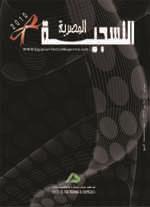Mubarak’s Visit to the Industrial Zone in Port-Said ( February.2010 )

.
Mubarak’s
Visit to the Industrial Zone in
Port-Said
Translated by: Madiha Ahmed Ali
President Mubarak paid a visit to the city of Port-Said within the framework of the government commitment to develop the city and attract investments towards it.
.jpg)
In addition to executive and popular meetings held in Port-Said governorate, Mubarak visited the Propylene and Poly-propylene Factory which is considered the biggest complex in the Middle East. In this respect, President Mubarak gave his approval on expanding the industrial zone in Port-Said with a view of making it the largest and the most enormous on a 87 million square meter area with w investment volume of 140 milliard dollars and 240 thousand career-opportunities.
The investment cost of the propylene factories amounts to 6.5 milliard Egyptian pounds. By using the Egyptian propylene gas, that Complex production capacity will reach 450 thousand tons; 70% of which will be exported and the rest will be allocated for the local market. Engineer Sameh Fahmy, the Petroleum Minister, revealed that the Complex is held by joint Egyptian-Arab investments.
.jpg) .
.
Mohamed Farid Khamis, one of the weighty investors in the Complex notified that 10 new factories would be established in Port-Said governorate; all of which would depend on the Complex production of propylene and poly-propylene, in the light of transforming the city from a commercial city into an industrial one. He added that the Port-Said governorate local people would be given top employment priority in those factories.
Besides, Khamis promised the political leaders that a new factory for producing propylene and ethane manipulated by the most sophisticated technologies in that field would be established at about 12.5 milliard cost. Co-operating together with the Ministry of Petroleum, the factory would be run by Egyptian natural gas.
It is worthy to mention, that the Egyptian Propylene Company has increased the paid capital money from 255 million dollars to 276 million dollars, thus fulfilling a second increase the share holders capital money subscription. The first capital money increase, this year, was from 240 million dollars to 255 million dollars.
An official source in the company disclosed that those consecutive increases in the capital money aim at enabling the company to keep on working in its factories with a purpose of starting production in the coming April and as expected commercial quantities would be set out as of the following June. It is estimated that the factory would be the biggest in Egypt for its production capacity which is calculated at 400 pounds of propylene. Moreover that factory is considered the second in that line of production following the factory affiliated to the Eastern Petro-Chemical Company which is affiliated to the Holding Eastern Group (Mohamed Farid Khamis). The factory is located in the industrial zone, North West of the Suez Canal, with a production capacity of 160 thousand tons per year.
Undeniably, the propylene productive capacity in Europe reaches 6 million tons annually, where as their yearly required quantity is estimated by 8 million tons; a matter which predicts the possibility of exporting it to the European Markets. Mr. Hesham Raafat , co-opted member in the Eastern Petro Chemical Company, unveiled the fact that the European Markets suffer from inability of getting their demands of propylene locally since there is a shortage in the liquid row material. Consequently, that industry line is bound to the countries which produce the row material specially those in the Gulf area.
Egypt has the advantage of producing and exporting propylene to Europe as a result of having a law transportation charges on the ships coming from the Gulf. Besides, the trade agreements concluded between Egypt and the European Markets imply that those products could be exported to Europe free of customs duties where as the European imports from the Gulf States are subject too 6.5% customs duties.
President Hosni Mubarak paid a visit to Lotus Factory of ready-made clothes. Engineer Husam Badr, Lotus Chairman, revealed that the factory is operated by 8100 workers and its exports amount to 480 million Egyptian pounds in addition to 680 million Egyptian pound investments. Husam added that about 6 million peaces are manufactured and exported to world re-known companies annually.

